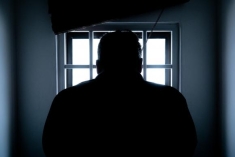Helping a Stigmatized Community Amongst Military Veterans

It’s no secret that formerly incarcerated people face huge obstacles in finding a stable job after their release, and the result is a ripple effect that impacts their housing security, physical and mental health, and, ultimately, their ability to successfully integrate back into their communities. While veterans have significant benefits at their disposal through the US Department of Veterans Affairs (VA)—including housing, loans, educational resources, and health benefits—those with other than honorable discharges from the military are ineligible to receive them.
“Service members with other than honorable discharges are more likely to experience unemployment, housing insecurity, and risk for suicide—and they’re more likely to be incarcerated, which compounds these challenges,” says Traci Overton, director of the Veterans Advocacy Clinic at Rutgers Law School. “It would be life-changing for these veterans to be able to access VA benefits upon their release from prison.”
In an effort to reach, educate, and help this community, the Veterans Advocacy Clinic hosted a presentation on April 4 in the veterans’ unit of the East Jersey State Prison in Rahway, New Jersey. This special unit was created in 2019 thanks to a grant from the US Department of Justice as the state’s first all-veterans housing unit, designed to provide one centralized location for veterans to receive services and resources focused on rehabilitation and reentry into the community.
Student presenters reviewed the process for and benefits of character of service determination and discharge upgrades and provided the inmates with printed resources on how to start the process on their own. After the presentation, attendees had the opportunity to ask questions about obtaining their military records, gathering personal statements, and getting the process started so they’re able to access benefits when they’re released.
“I enjoy working with inmates because they don’t typically have access to the same type of programming as the rest of us, and their limited access varies depending on which facility they’re in,” says one of the student presenters, Jen Loughran '23. “This was an opportunity to provide much-needed help to a stigmatized community.”
For more information about how to upgrade a discharge or character of service determination, visit www.swords-to-plowshares.org/guides/upgrading-your-discharge.
The Rutgers Law Veterans Advocacy Clinic based in Camden represents New Jersey veterans seeking discharge upgrades after being unjustly separated from the military with "bad paper discharges" (other than honorable discharges) for behaviors attributable to Post-Traumatic Stress Disorder, Traumatic Brain Injury, Military Sexual Trauma, or other mental health disorders, and those whose discharges were due to discrimination based on their race, gender identity or sexual orientation. Students also represent veterans in Character of Service Determination matters before Veterans Affairs. Call (856) 225-6568 for more information.